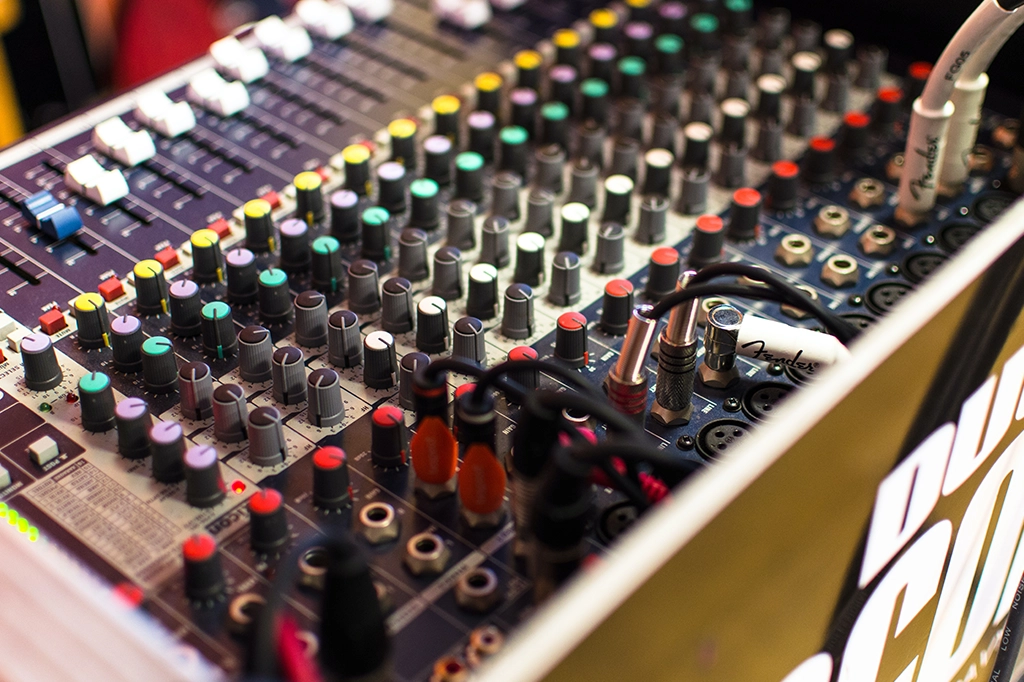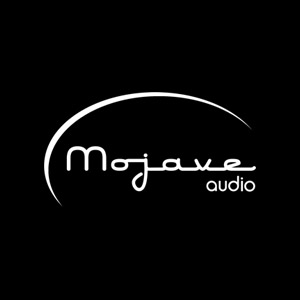How to be Successful in the Audio Industry – Part 4

Part 4 of our series on “How To Be Successful In The Audio Industry” is submitted by our IT Technician, Jess Repanshek. He’s put together a good list of Top 10 tips and great quotes from graduates on how to be a successful audio engineer.
Thinking about going to school to learn audio recording? Have you always really wanted to learn the tech tools and secrets behind making those killer albums? I’ve gathered some tips from our grads over the years and compiled a list of the best ways to be successful at an audio recording school for your enjoyment.
Here’s a compilation of the top 10 tips!
- Spend time in the studio! Especially at CRAS, where the campus is open 24/7, use that time to your advantage.
- Network! This doesn’t just mean add someone on Facebook and call it a day. Meet people, sit in on sessions, offer your assistance. The more you are around people, the more they will want you around.
- Don’t ever feel too good to do a simple task. Sometimes knowing that you are willing to do the smallest, most menial tasks indicates that you are willing to take pride in doing the more important tasks.
- Always keep learning. The audio industry is always evolving, and there is always something new to learn out there. Good audio engineers are always continuing their education.
- Work hard, work smart, and always keep an eye out for how other people do things. What may seem “incorrect” to you may be a shortcut a seasoned engineer has developed over the years that saves them time and hassle.
- Be observant! Especially in the studio. Know how to be there when you’re needed, and be gone when you aren’t wanted.
- Don’t be afraid to ask questions. Asking questions indicates you are willing to learn, that you are humble enough to admit you don’t know everything, and indicates that you respect the opinion of the person you are asking.
- Be open to doing any gig, whether or not you really want to. Going outside of your “safe-zone” can build character, teach you new skills, and open up many more opportunities down the line.
- Be willing to work long, hard hours. Remember, the audio industry is a great industry to be in, and one that countless people want to be involved with. You should cherish your time being around audio equipment. Even the worst days I’ve spent in a studio were better than any other job I’ve had outside the audio realm.
- Be humble, be open-minded, and just be enjoyable to be around!
Check out some comments from our graduates:
Garrett B.
Take the time to study and really get into the studio and do whatever you can that involves audio. It doesn’t have to be the head audio engineer. It could be mic running, helping setup studio or a live gig. Just really immerse yourself in the audio world. Another thing, that you should be doing at all times when possible is networking. It has been a huge help to me in my career.
Omar L.
This audio journey is NEVER over. Keep learning and growing. There’s always something to learn or re-learn. OUT WORK EVERYBODY! Be the first to show up and the last to leave. Don’t complain and become an asset. Make it so that the studio or session can’t run if you aren’t around. Remember there’s always someone younger and hungrier dying for an opportunity. Don’t take anything for granted! This industry is not easy. Be prepared to sacrifice a lot.
Robert V.
The best advice I can give my CRAS peers would be to take your internship seriously. Be at the studio as much as possible, any time you can. Be observant and attentive. Of all the interns I’ve had throughout the years, the only ones that stick out are the ones who anticipated my next need, without me having to ask. In one example, a guitarist said only one side of his headphones was working. I turned to ask the intern to grab a new pair, but the door was already closing behind him as he was already on his way. A good intern would be there when I got there, and would leave when the lights turned out. They didn’t complain, nor appear bored… ever. Let’s face it, nobody enjoys taking trash out, but quality interns will fake it. And those are the interns I’ve hired as assistants and flown all over the country with me. Take notes of settings, watch carefully where mics are placed, and be a fly on the wall.
Ryan K.
Save lots of money for the bad times(which is always), never stop being passionate about the music, never give up until you don’t love doing music with every fiber of your being.
Aaron
Take advantage of everything CRAS has to offer. Be there 24/7. Hand write your notes, then copy them to your computer. Practice everything as soon as you can! Stay current, don’t slack, don’t take anything for granted, study and get it right the first time. Don’t fall back on retakes. Use the gear! Learn the gear. Experiment. Don’t be afraid to ask questions, and study your notes. USE PROJECT STAFF to the fullest, they know more then you, they have been doing this longer then most of you. Network, make friends, collaborate, share different views… It’s not about who is the best, it’s about what you retain.
Thomas P.
Don’t be afraid to ask for help. The guys who have been doing it for 30 years are willing to help you. All you have to do is ask.
Jordan F.
Be persistent and don’t give up, even if it’s hard to do. There are plenty of jobs out there, you just have to be good enough for people to notice you. Don’t be afraid to do a little manual labor. I hear all the time people saying “I only want to mix and not do any heavy lifting.” if you say that, your boss is just going to look for the next person willing to do that task, and you may have lost your opportunity.
Brian
The social aspect of the industry is equally as important as the audio side… start going out, making friends, and networking. If you know how to talk to people and are a social butterfly, you’ll move up much more quickly!
Also, understand that you may not be a mix engineer or any kind of audio engineer right off the bat, but make sure you’re prepared to do whatever will be asked of you. Get familiar with Compressor and file conversion. Watch everything your superiors do, because they aren’t going to tell you to come look when they are doing something important. If you have down-time, ask to make a copy of the studio’s block diagram/signal flow. You’ve seen these things before and they will DEFINITELY help you understand what’s happening around you!
Owen P.
- Move to where you want to work and plan on being there for a long time while you build up connections in the area.
- Be prepared to work for free for long periods of time. Working for someone will always work better than sending someone a resume. If they know that you are a dependable, hard working, smart and creative individual, your resume doesn’t matter. Find a studio and offer to work for free. It doesn’t have to be full time, just let them know who you are and what you can do.
- Don’t expect immediate results. I got my first job as a re-recording mixer by working virtually for free for 9 months and outlasting all the other interns around me. There is a lot of competition around here and the ones who last the longest get the jobs (barring any lack of skill or unsavory personality traits). Which leads me to my next point…
- Don’t be a jerk. Don’t be arrogant. Be humble. Be teachable. Be a hard worker. Your personality is equally as important as your skills when it comes to getting a job. Don’t go into the situation thinking you are entitled to anything. You don’t deserve anything until you get it. If you get passed over for a job, it’s because you were not able to adequately impress those who make the decisions. Do better. But don’t be a jerk about it.
- Learn everything you can about how the place works.
- Use that knowledge to do freelance gigs in your spare time. You can find these gigs on Craigslist under the Jobs or Gigs sections, Mandy.com, productionhub.com, indeed.com, etc. If you’re willing to work for next to nothing, you can get a lot of experience doing student films and low level independent stuff. If you search for Sound Designer jobs, a whole lot of student films will come up, because to them, that is who does all the sound for a movie, not the sound editor, Foley artist, re-recording mixer, etc.
I’ve seen people get hired at their first internship location and I’ve seen people do 5 or 10 internships before they found a place. I’ve seen people do so well at the freelance stuff that they quit their internship and did freelance full time. The hardest workers who are the easiest to work with and learn the fastest always do pretty well and the lazy, hard-headed people who are difficult to work with don’t make it too far. Hopefully this will help you make it a little further than you otherwise would have. Hope it helps.
Tanner D.
BE HUMBLE!!! Please for the love of all that is holy, don’t walk out of CRAS thinking that you are a gift to the studio you are going to intern for. I have only experienced this with one CRAS student, but when we have received interns from our local university, the interns have thought they were gracing us with their presence, and were inconsiderate.
Next point is STUDIO ETIQUETTE – know when to walk into a room, especially if that room has a tracking or mixing session in progress. There are definitely better times than others. Also, know when to speak to the engineer/producer/etc., and know your tone of voice when you’re saying it. Especially if you think the engineer may have done something wrong. don’t assume he/she did! If its something as simple as doing something differently in Pro Tools, or mic placement, 9 times out of 10 we know what we have done, or are trying something new. Do not try and correct them on the spot, instead wait for a break or until after the session and politely ask about what they did and why they did it.
If you can avoid sound like a smart ass or inconsiderate, that’s better for you in the long run!
Nicholas W.
Take advantage of the fact that while you’re in school you have 24 hour access to two API consoles, two Neotek consoles, and two SSL consoles, not to mention the C|24s and all the cool toys in the mixdown and MIDI labs.
Daniel M.
Nurture your curiosity. Look for the decent jobs that give you tons of freedom, as opposed to the supposedly big-time jobs where you won’t have any freedom at all. Obviously, there’s a balance to be found.
Also, I’ve found that just plain “caring about what you’re doing” will go a long way towards setting yourself apart from the pack.
Help musicians carry their gear! There is nobody too good or too important to help carry gear.
Jose A.
Take advantage of all the great clinics and incredible equipment! NETWORK! And have fun!
David D.
Be patient. Work hard. Be proactive. Be humble but smart. Don’t say anything until someone says something to you. Be interested in making things better for yourself and your team.
Holley B.
Network, network, network!!! Constantly be on the look out for work. Multitasking and various skills in and out of this industry are good to have. Even if there is one part of industry you are not into or not passionate about now, it will be worth it to learn as much as you can about every part because that may end up being your job one day.
Cory W.
Use your intern time wisely. If you feel underutilized at your studio, ask for more to do. Get involved in whatever they’re doing. If, like the studio I went to, they aren’t doing anything, get out and go someplace where they’re working sessions. Do this even if that means you have to prolong your internship time.
It’s all about the effort you put in. Slack off and it’s only you who suffer.
Always keep an open mind and learn something from whoever is around. You never know where you’ll end up.
I’ve yet to find that recording studio job but I’ve worked the Olympics, a Super Bowl, four Final Four events, and a hundred-sixty something NFL games using things I learned at CRAS.
GOOD LUCK!
Mike B.
Take in every moment in the classrooms. Sometimes you don’t realize which avenue may be right for you until after you graduate, so if you really dig in and focus in each part of the process, you’ll be versatile enough to do anything in audio.
Jonathan J.
Sign up for as much studio time as you can. Record as many classes as possible. Sign up for the build clinics, and most importantly don’t be shy and feel free to step in and help out with all the hands on portions of the curriculum, volunteer for work assignments.
Unwa S.
Keep an open mind. Understand goals are not reached over night. Also realize that the effort you put in will determine the results you get back. Network with your peers and fellow students. Utilize the school’s facilities as much as possible. Become familiar with the gear you will be using a lot on your internships. Most of all TAKE FULL ADVANTAGE OF OBTAINING 60 HOURS OF FINAL INTERNSHIP HOURS FOR YOUR GRADUATION REQUIREMENT BEFORE YOU LEAVE CAMPUS!
Joseph C.
Never stop learning. CRAS supplies you with the matches, but the fire will burn out if you stop adding wood.
TJ C.
Pursue an audio engineering career because you love the work, not to make money. When you find your niche, the money will find you.
Commit to a life of learning. It doesn’t stop when you graduate or get a job. Remember people’s names. Choose your projects wisely, and give every project you work on your all.
Spend time in a big market (LA, NYC, Nashville, etc) early in your career interning and assisting for the best people that will take you on.
Brian A.
You are never the last step in the process. What you do in your sessions and how you prepare your tracks will have an effect on the next person who takes over after you. If you want to stand out and be remembered (and ultimately requested), keep that simple philosophy in mind and communicate with the next person and make sure you deliver what they need the way they want it, which may not be what’s easiest for you.
Justin G.
Look long and hard before deciding where to intern, ask questions, never stay silent. Lose any semblance of an ego now before you walk in the doors, just because you went to school doesn’t mean you’re the best and brightest. Be willing to get the coffee or take notes or run some cable. Don’t be afraid to sit in a shop for two years before going out on tour. Get the job simply by proving you can be a part of the family and that you know how to learn and take advice, rather than saying “I already know how to do that.” Chances are the people above you have been doing it longer and know a better/more efficient way to do it. Trust your internship coordinator, constantly be asking for advice. Go out and have fun, and be successful.
Steve O.
Always keep a positive attitude! Especially in how you phrase things. An intern was cleaning a room in a hurry and asked me “It doesn’t look like shit in here, does it?” And I’m like “Why would you put the image of shit in my mind before I even have a chance to think about it?”
That goes for everything you say, especially if something goes wrong. Don’t start a sentence with “I have some bad news…” or “There’s a problem with…” or “I think I messed up.” Just be direct and focus on a solution as fast as possible instead of dwelling on something negative. And if you do mess up, admit it, then immediately offer solutions to fix it. If you can’t think of a solution, just step out of the room and call another engineer.
Also, never say sorry more than you have to. No one wants to be reminded of your screw-up. Chances are they already forgot and moved on, and you’re the only one dwelling on it because you’re new.
And trust me, you’re going to mess up when you’re first starting out. That’s how you learn. Every session is different, every room is different, every patchbay is different, some things you simply haven’t experienced before. Just ask around and learn as you go, but be confident about it.
I remember one of my first sessions somebody asked me to hook up something I never have before and I had no idea how. I was just like “I need to grab a cable out of the shop, be right back” then I ran into the hallway and called the tech to figure out how to do it. Came back in with a random cable in my hand and set it up without him even knowing I was freaking out! You never want to bring that freak out stressed energy into the room, because it is contagious! Just like positive energy is contagious, too.
A lot of your opportunity depends on your personal interaction with clients. The booking managers usually put people on gigs who they think would vibe well with that client. Often times the vibe is more of a factor than the level of talent. Just be friendly, act like you know what you’re doing, and stay positive!


























